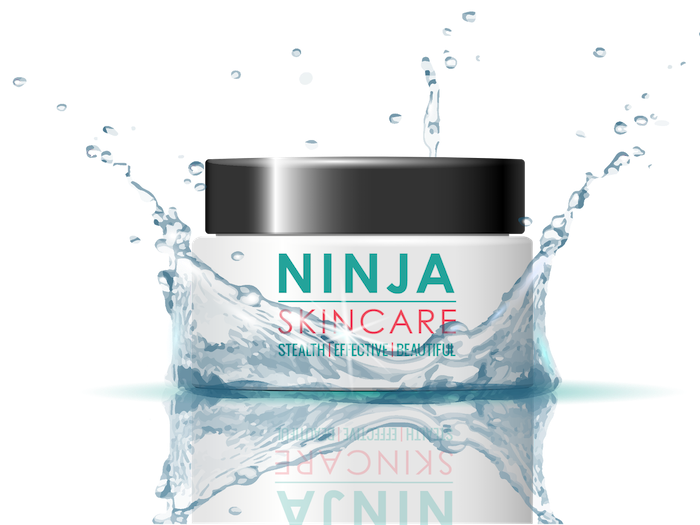The Benefits of Fiber
August 1, 2024
Fiber Fiber Fiber
I have mentioned before that I am slowly and very surely, turning into the all-natural supplement queen . I would open my mom’s refrigerator and find the entire top shelf filled with bottles upon bottles of really expensive supplements. I found it incredible that a single, hard-working woman, would prioritize such a large percentage of her monthly budget over things that I felt much more worthy – like dining out, trips, and nice cars.
Fast forward to today. At 48, I am a sucker for anything that is advertised to make me feel better, sleep more deeply, wake up with less aches and pains, have more energy etc etc.
Most recently, I actually *gasp* bought something off the TikTok shop – a mineral powder supplement that will supposedly make me feel like I am at least in my early thirties. It is still too early to determine whether or not I was sold snake oil but in the meantime, I am left contemplating my next all natural remedy for having lived 48 long years.
And that is FIBER.
Fiber isn’t as scary to me as “chelated minerals, iconic trace minerals and burdock root” – which my multi-mineral pack currently advertises. And to be fair, I actually have a fairly clear idea of what fiber is and some of the foods that are fiber rich. What I am not entirely clear on is why I should prioritize fiber and exactly how much fiber per day I should be consuming.
So let’s figure that out, shall we?
First things first – what is fiber?
It is a carbohydrate found in plants that cannot be absorbed or digested by your body. Because of this, it is commonly referred to as roughage. Most people think of fiber and they think of constipation relief. But there is a lot more to fiber than that. If enough dietary fiber is consumed on a daily basis, it can help control weight, lower your risk of diabetes, heart disease and some types of cancer.
The four components of your diet include protein, fats, carbohydrates and fiber. The only component that cannot be absorbed and digested into your system is fiber. There are 2 types of fiber – soluble and insoluble. Soluble means that it can be dissolved in water. Soluble fiber can lower blood cholesterol and glucose levels. Insoluble fiber is what most people think of when they think of fiber – it promotes bowel movements and therefore is a favorite for people who frequently suffer from constipation.
The Benefits of a High Fiber Diet
- Normalizes Bowel Movements. We know that this topic can be funny. I mean, I have a house full of girls and 90% of our family jokes involve poop on some level. But maintaining bowel health is so important for various reasons. With a diet rich in dietary fiber, you are increasing the likelihood of normal bowel movements, with regular bulk and frequency. That means your bowel movements will neither be too loose or too hard, which would result in constipation. Without normalized bowel movements, you risk not only becoming severely uncomfortable but more serious consequences like developing hemorrhoids, diverticulitis and even colorectal cancer.
- Lowers Cholesterol Levels, Blood Pressure and Inflammation. Yes. Yes. Yes. Tell me now how to do all of this! By eating foods rich in soluble fiber, you are decreasing low density lipoproteins – or “bad” cholesterol for those of you who are becoming overwhelmed by all of the big words, like I am!
- Helps to Maintain a Healthy Weight. Now, as a woman who has always struggled to maintain my weight, this is a BIG win. High fiber foods naturally take slightly longer to eat and are low-energy, meaning that they aren’t high calorie. But the flip side of this is that they also take longer to digest, meaning that they generally make you feel full longer and therefore you don’t eat as much!
- Lowers Your Blood Sugars. This one is particularly interesting to me as a person who has a family history rich in diabetes. When soluble fiber is consumed, a gel-like substance forms in your stomach and coats the contents of the food in your stomach waiting to be digested. This gel-like substance slows the digestion of that food and therefore slows the release of sugars as it is digested.
- Help You Live Longer! There have been studies that show that people who have diets rich in fiber are less likely to die from all cancers and cardiovascular diseases.
What Foods are Fiber Rich?
Now that I hopefully have you convinced that fiber is important, what foods are high in fiber?
- Beans: Black Beans, Garbanzo Beans, Lentils… you name it and if it is a bean, it is high in fiber!
- Vegetables: Brussels Sprouts, Sweet Potatoes, Broccoli, Turnips, Carrots, Avocado
- Fruits: Pears, Figs, Nectarines, Apples, Apricots, Guava
- Whole Grains: Barley, Brown Rice, Quinoa, Oatmeal, Wheat bran, Oat bran
- Nuts & Seeds: Raw Almonds, Flaxseeds, Sunflower Seeds, Walnuts, Sesame Seeds
-
There are plenty of other foods that are high in fiber but this is a pretty good list to start with. For best results, do some research on google – there are lists aplenty!
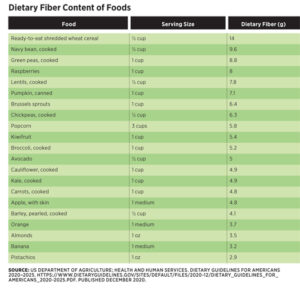
How Much Fiber Should Adults Consume Daily?
Under Age 50:
- Men – 38 grams
- Women – 25 grams
Over Age 50:
- Men – 30 grams
- Women – 21 grams
Is Dietary Fiber Better OR Are Fiber Supplements a Good Substitute?
This one has had me stumped for a while. Forever, I have heard that taking supplements is a wasted effort because they don’t totally get absorbed the same way as if you consume them via diet. In doing my research for this post, that assumption is generally supported. To put it simply, if you take a fiber supplement, you will get enough fiber but you won’t get the additional benefits that you would get if you consumed it dietarily. Meaning that when you get fiber through your food, you will not only consume your daily fiber but you will also get added benefits of other vitamins and minerals, such as vitamin C, B and D. So if possible, try to get your daily fiber through the food you eat but if you are unable, absolutely take a supplement such as Metamucil or Citrucil.

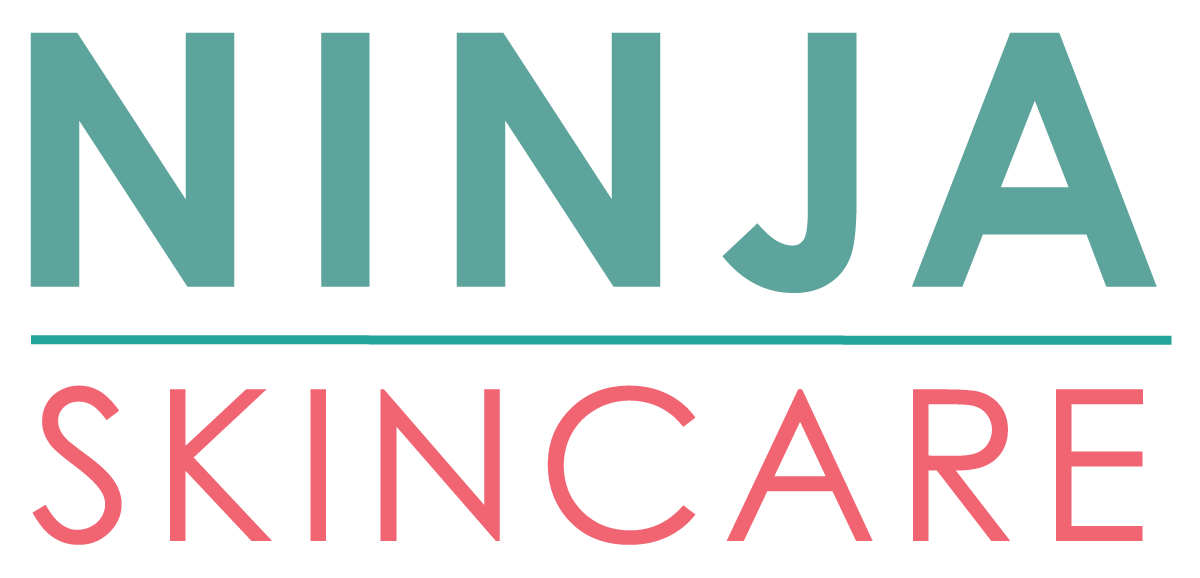
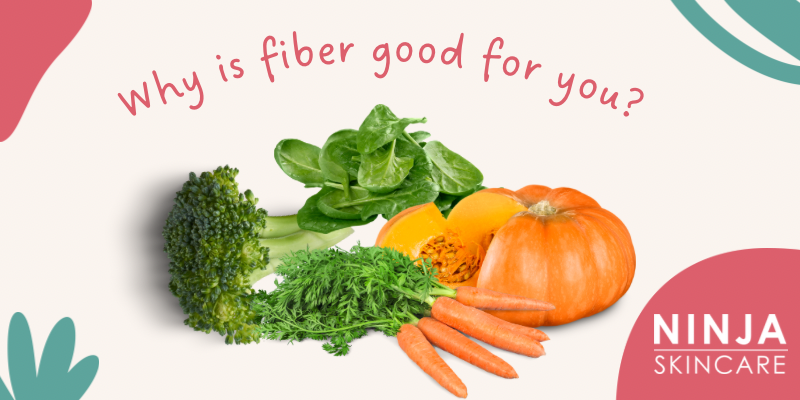
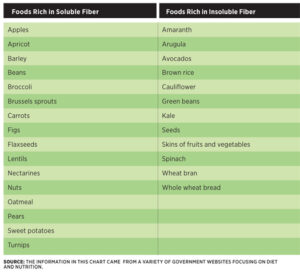
 Get a ZERO obligation consultation with an acne-fighting Ninja!
Get a ZERO obligation consultation with an acne-fighting Ninja!